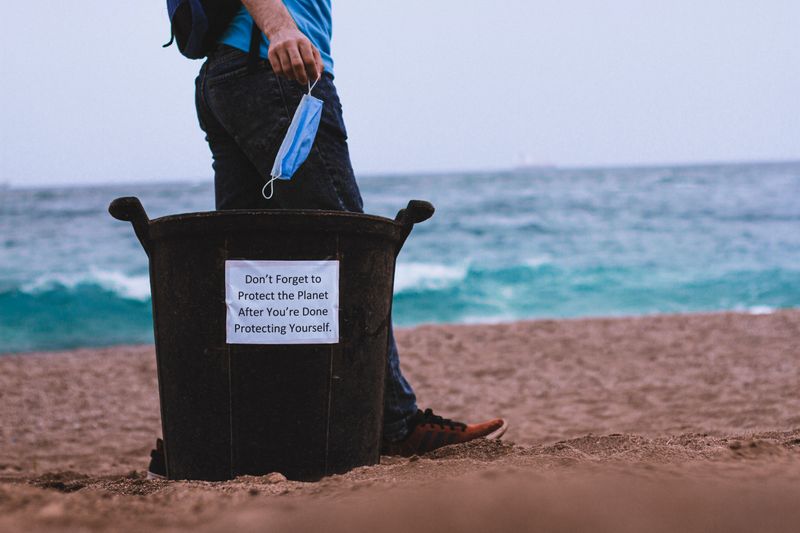
Of the eight million known animal and plant species on planet Earth, as many as one million could soon be under threat for extinction without concerted action.
Let that sobering thought from the Intergovernmental Science-Policy Platform on Biodiversity and Ecosystem Services sink in as we observe yet another World Nature Conservation Day – the global movement that acknowledges that a healthy and diverse environment is the foundation for a stable and healthy society.
The United Nations estimated years ago that more than 60% of the resources nature provides us – such as resources and raw materials, fuels and biochemical balance – are being consistently degraded, thereby weakening biodiversity and putting our future at risk.
With myriad examples of the effects of that change visible around us the world over, never have the consequences of environmental concerns been so real for our societies. Extreme weather conditions such as cyclones, flooding, droughts and wildfires, as well as rising ocean temperatures and the destruction of habitats, today threaten the biodiversity of the natural world.
That premise might appear to be far removed from the world of corporate targets and company results, but as several surveys and reports have repeatedly shown us, it is in the intrinsic interest of companies and commercial organisations to be increasingly concerned about biodiversity and forge the right partnerships to protect it.

The disappearance of biodiversity can not only harm the long-term sustainability of industrial activities and seal the fate of several sectors, but also cripple consumer choices, drive down economic growth and decimate corporate competition. Without abundant and diverse flora and fauna, neither business nor commerce can flourish.
The UAE was one of the earliest countries to seize the initiative, pioneering proactive strategies for an ecological transformation that rejuvenates and reinforces regional biodiversity.
From expanding the scope of the Ministry of Environment to include climate change, and establishing and expanding protected areas, to reintroducing endangered species into their natural habitats, and enacting new legislations to halt biodiversity loss, the issue of biodiversity has received considerable and early attention in the UAE, reflected in the significant achievements in this area.
The country has taken an integrated approach to tackling the issue of biodiversity: its National Biodiversity Strategy includes 5 strategic guidelines and 21 national targets, formulated in line with the Aichi Biodiversity Targets and the UN’s Sustainable Development Goals.
For instance, in order to protect and restore the natural habitats of its local plants, the UAE has created a database of local plant species and made it available to the public through a dedicated app. The Ministry of Climate Change and Environment has completed a unique date palm tree identification project through DNA profiling to preserve, identify and classify all genetic assets of date palm trees in the country.
Similarly, the UAE continues to strengthen biodiversity through plans and initiatives in the framework of the National Strategy to Combat Desertification and the Strategy for Sustainability of the Marine and Coastal Environment, among others.
This wide gamut of projects and initiatives offers the perfect platform for companies in the country and region to take decisive action to protect the region’s wealth of biodiversity.

Ways of taking action
Whether it’s calculating the cost of ecological management, restoring natural environments, or building artificial reefs, there is no dearth of options and solutions for companies and organisations to engage in to preserve the wealth and diversity of our ecosystems.
But to truly ensure biodiversity for our future generations, we must embrace an ecological transformation: structuring choices that address the co-related pillars of climate change, biodiversity collapse, pollution and resource depletion.
These include setting up high-tech monitoring systems to check the health of local ecosystems, repopulating artificial reefs, incorporating initiatives designed to protect ecosystems as part of site design and management of large projects, and a wide variety of options in the water, energy and waste businesses.
Governments and the private sector need to work closely in providing these solutions with a positive impact for all stakeholders: consumers, partners, commercial enterprises and society as a whole.
The ambitious idea of resourcing the region and the world requires the support and collaboration of every stakeholder – but the good news is that with increasing investments in conservation and biodiversity, we could save one in three species from becoming threatened or extinct by 2100.
On this World Nature Conservation Day, let us pledge to work together to make that happen.
Pascal Grante is the Chief Executive Officer, Veolia Near and Middle East







